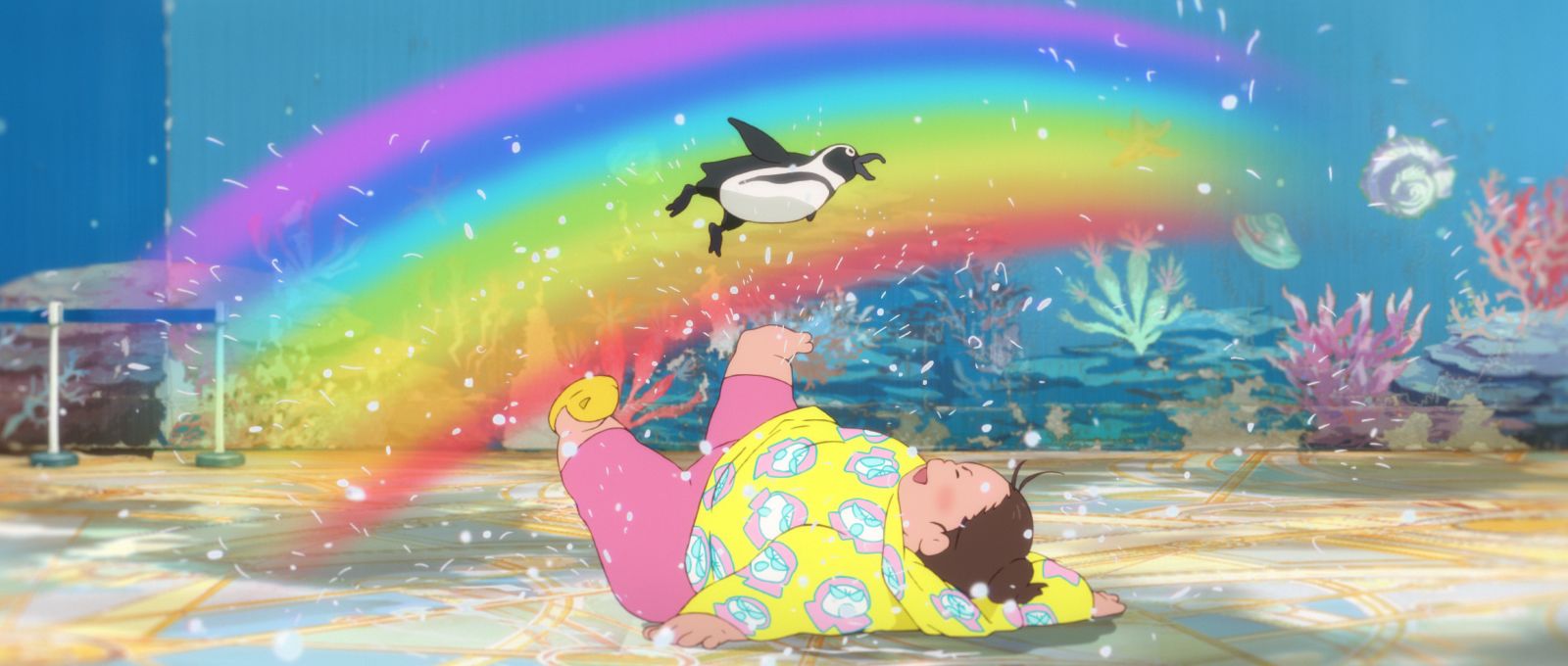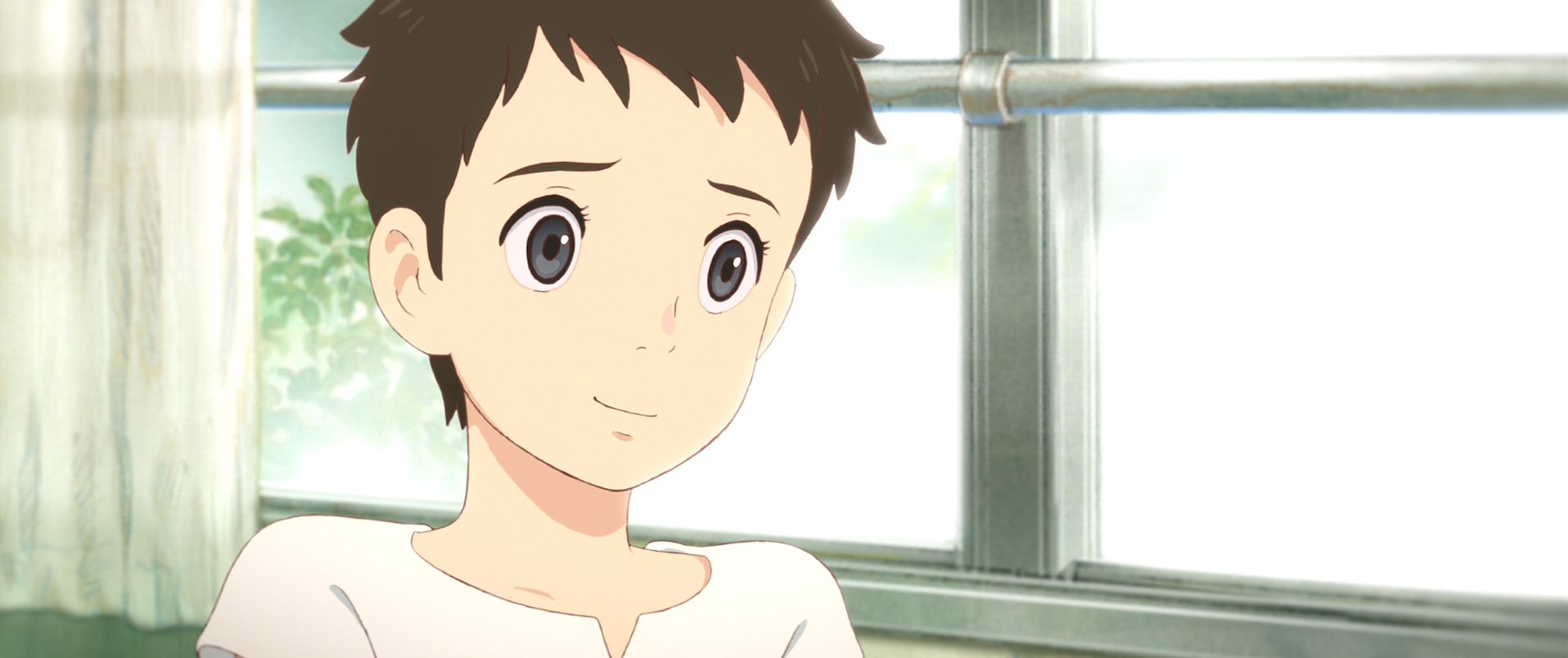Slice of life anime is often defined as cute girls doing cute things. A bunch of sickeningly sweet high schoolers start an after school club, open a bakery, or form a rock group all with a singular goal in mind. But the final narrative destination doesn't really matter, instead acting as a foundation for the usual hijinks this genre has been obsessed with for decades.
It’s all grown a bit tiresome, with only a few shows from each new season managing to shake up the formula and offer something new. So much anime nowadays hopes to break through the noise and catch our attention, keeping us entertained long enough that it can justify shifting Blu-rays and figurines to keep the profits rolling in. Yet so much of it can be thrown aside as forgettable sludge, falling victim to the worst possible archetypes and tropes.
Fortune Favours Lady Nikuko is different. It isn’t cliched or wrought with fan service. It feels real in a way that is equal parts melancholic and charming, painting a picture of contemporary poverty in Japan as a mother and her adopted daughter try everything they can to maintain happiness in a world that often feels set against them. It doesn’t have an epic plot or a larger than life villain, instead finding beauty in the mundane everyday.
Releasing in UK cinemas on August 10 courtesy of Anime Limited, this charming little film from director Ayumu Watanabe (Children of The Sea) is one I desperately hope finds an audience. It doesn’t have the coming-of-age romance of Makoto Shinkai’s Your Name or the digital exuberance of Mamoru Hosoda’s Belle, instead choosing to weave a much smaller yarn with a pace that at times can feel glacial. Yet every scene is deliberate, building up its realistic pictures of its characters living normal lives in spite of the circumstances bestowed upon them. It’s filled with passive moments of heartbreak, making you realise that its heroine deserves a much better existence than she has, but admire how she acknowledges that fleeting potential before settling for what she is lucky enough to have.
Nikuko and Kikuko are a mother and daughter living aboard a cramped fishing boat in a small Japanese town. Nikuko is loved and mocked amidst the local community, known for her overweight stature and love of all things food. Yet she is also endlessly cheerful no matter the situation, always learning to find the bright side of things after a past filled with hardship. Her design is clearly a riff on Totoro, with so many scenes and visual motifs making clear reference to the Studio Ghibli classic. Despite her overbearing personality, Nikuko is a woman who will do anything for those under care even if it means making mistakes along the way, often failing to make real conversation with her daughter or even understand the trials and tribulations that come with growing up in an always changing world. Many will see her as the film’s brightest spark, yet she is also its most tragic.
Kikuko is the film’s narrator, often unreliable in her retelling of events as she attends school and tries her best to make friends and avoid confrontation. Her clothes and appearance are plain, a clear signifier of her humble upbringing and how her mother is seemingly more obsessed with stuffing her face than providing for her family. The film has her making friends with a girl far above her class, only for silly misunderstandings to see them fall out and seldom reconnect as life moves on. We are little more than observers, watching the daily routine of this adorable little town unfold from the perspective of a girl who is learning many of these things alongside us. She has only one family member to speak of, few friends, and a whispered line delivery that verges on the precipice of apathy.
Her journey is slow and meditative, touching on issues of poverty, social acceptance, and growing up as a young woman in a world that doesn’t always have the means to shape her in the best possible way. Nikuko isn’t her daughter’s birth mother, asked to raise her due to unfair circumstances that I won’t spoil. In her mind she isn’t fit to raise a child, her personality one of individual excess and lackadaisical malaise that make her carefree in ways that an anxious girl like Kikuko simply isn’t built for. But she tries. She tries so hard to provide for a girl who is her opposite in almost every way, yet she loves her without question and hopes to play a part in the little moments that really matter. Kikuko is the same.
While she might express dissatisfaction at their lacking living conditions and the bullying she is often subject to at school because of the family she was thrust into, that never becomes a burden to hold her down. She moves on with neutral determination, sometimes even cracking a smile as her caring personality shines through. Her disposition is so often one that tolerates existence, but throughout the film she overcomes this anxiety to become a more confident individual, gaining agency that allows to become far more than a heroine that sits on the periphery telling a story that seldom belongs to her. It does, and when she claims it in the film’s final act I couldn’t help but shed a tear for how this little family comes together.
Fortune Favours Lady Nikuko won’t be for everyone. It’s deliberately plodding in its narrative and the characters aren’t concerned with keeping our attention with melodramatic plot developments. But I don’t believe it has to. Ayumu Watanabe set out to tell a rural tale that questions societal misconceptions and the value of incomplete families and how we should embrace familial love and dependance regardless of the form it happens to take. This is a beautiful movie, reminding me of similar greats like In This Corner Of The World and Only Yesterday that abandon fantasy in favour of reality and are so much more relatable for it.




